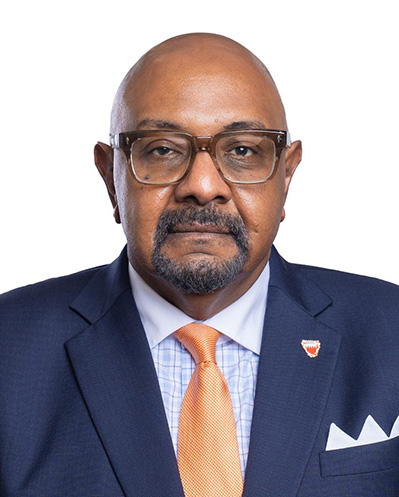
Alsadig Khalafalla is a member of the Board of Trustees of the King Hamad Global Center for Peaceful Coexistence and currently serves as an advisor for strategic affairs at the Ministry of Foreign Affairs in the Kingdom of Bahrain. The following post is based on his remarks during the panel “Religious Perspectives on Religious Freedom and Peace” at the ICLRS 31st Annual International Law and Religion Symposium, 7 October 2024.
Bahrain, a small island nation in the Arabian Gulf, has been a focal point for discussions surrounding religious freedom and peace, stemming from its diverse religious landscape. Bahrain is a Sunni Muslim country with a significant Shia population, but it is also home to various religious minorities, including Christians, Jews, Hindus, and members of other faiths. This diversity in Bahrain has shaped the discourse on religious freedom, often reflecting the broader political and social dynamics at play in the region. Historically, Bahrain has been characterized by its tolerance toward different religions. The Bahraini Constitution guarantees freedom of worship, allowing various religious communities to practice their faith openly. Houses of worship belonging to numerous faiths can be found across the country, symbolizing the degree of open society.
In addition, ongoing efforts from civil society organizations and interfaith groups within Bahrain are aimed at nurturing a culture of peace and reconciliation. Initiatives such as dialog forums, religious festivals, and educational programs seek to foster mutual understanding and respect among the different faith communities. These efforts reflect the grassroots acknowledgement that peace cannot be achieved without addressing the grievances related to religious freedom. Furthermore, the Sunni and Shia communities in Bahrain have historically collaborated in various aspects of society, indicating that despite their religious differences, a foundation for peaceful coexistence exists. Community leaders and ordinary citizens often work together on social and economic issues, underscoring the potential for unity beyond sectarian lines. Emphasizing shared values and collective aspirations can play a pivotal role in promoting peace.
In 2018, His Majesty the King established the King Hamad Global Center for Peaceful Coexistence in Bahrain, aimed at promoting intercultural dialogue, tolerance, and peaceful coexistence among various local and global communities. The Center serves as a hub for initiatives that foster mutual respect and understanding among different faiths and cultures. The King Hamad Global Center board consists of six Bahraini: I am one, along with five international religious leaders representing Shia, the Vatican, the Coptic Church, Hinduism, and other faiths.
At the King Hamad Global Center for Peaceful Coexistence, we have focused our energy on educational efforts to fulfill our mission of fostering peaceful coexistence. Those efforts include developing a diploma program in cooperation with the United Nations University for Peace, a four-year leadership training program; the King Hamad Chair for Interreligious Dialogue and Peaceful Coexistence at Sapienza University in Rome, Italy; a Faith and Leadership program at Oxford University; and an ethics education program, in cooperation with the Bahrain Ministry of Education. In addition, we just signed an agreement with the Inter-Parliamentary Union in Geneva to develop a peaceful coexistence model of legislation supporting the training of legislators from around the globe on values of peaceful coexistence.
Moreover, to promote peace and coexistence, the Center and the Kingdom of Bahrain established the King Hamad Global Prize for Peaceful Coexistence, an initiative that recognizes and honors individuals, organizations, and institutions from around the globe that contribute to the promotion of peaceful coexistence among different cultures, religions, and communities. This award aims to foster understanding and tolerance in an increasingly diverse world.
The Center is also working on raising awareness about the importance of adoption of an international convention for peaceful coexistence, which would include key elements such as protecting the right to freedom of religious belief and practice, and combating hate speech, among others. As a prelude to the convention, the international community needs to reach an agreement on fair definitions for these elements, including hate speech. The convention should be able to balance the right to freedom of expression and the right to dignities inherited in all international norms and conventions. We should all work on combating hate speech, regardless of what or whom it is directed against; it is a key aspect of achieving peaceful coexistence in an ever-turbulent world.
In conclusion, while religious freedom in Bahrain is guaranteed by the Constitution, the reality remains fraught with challenges, particularly for marginalized groups.
